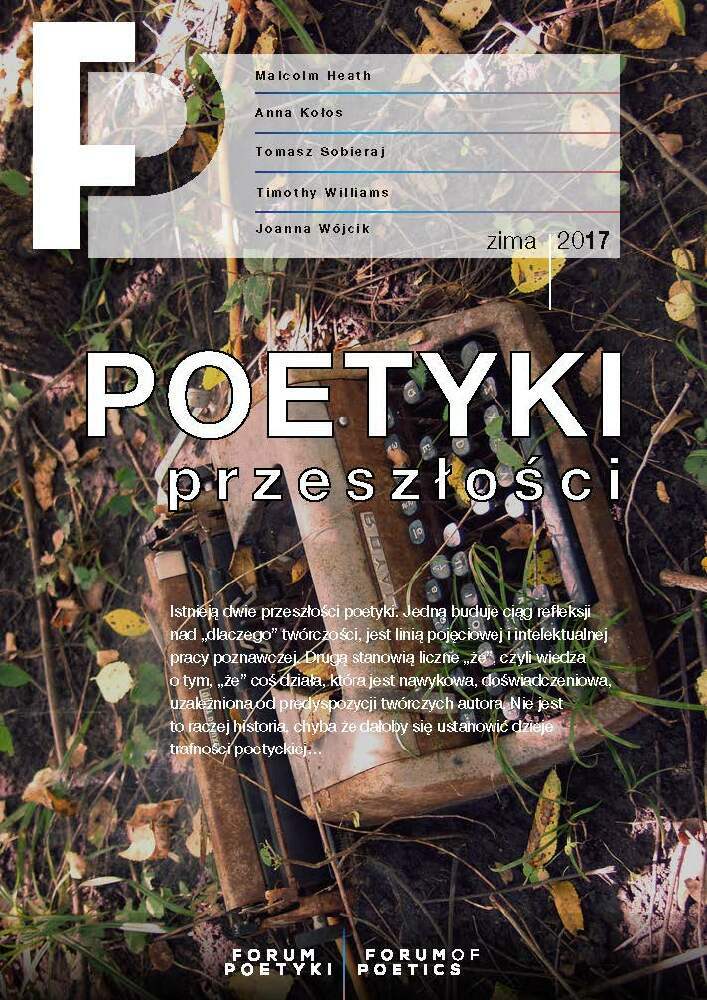Abstract
Attempts to imitate the metric verse of classical antiquity in Polish literature involved the need to use an oxytonic accent in the clausula. A dispute broke out in the 18th century in connection with that problem. Polemicists discussed possible ways of transferring to Polish poetry the structure of the standard elegy, as well as the function of masculine rhyme, which was linked to that particular genre. Masculine rhyme, perceived as frivolous and light, was felt by the Enlightenment poets and theorists to be unsuitable for emotional, melancholy lyric poetry.
References
Brodziński, Kazimierz. „Dumka”. Pamiętnik Warszawski, b.d.
Brodziński, Kazimierz. „Złe i dobre”. Pamiętnik Warszawski, 1816.
Krasicki, Ignacy. „Lwica i maciora”. W Bajki, 9. Wrocław, 1989.
Królikowski, Józef Franciszek. „Uwagi nad iednozgłoskowym rymem”. Pamiętnik Warszawski, 1817.
Okraszewski, Stanisław. „Panegiryk nowych a szczęśliwie wynalezionych rymów”. Pamiętnik Warszawski, 1816.
Okraszewski, Stanisław. „Wspomnienia okolic Rzymu”. Pamietnik Warszawski, 1818
License
Authors of articles are responsible for securing the rights to other publications (texts, tables, drawings and other illustrations) quoted or reproduced in their texts.
